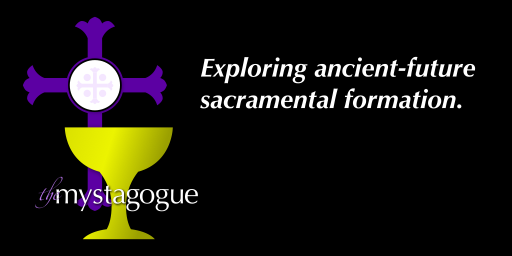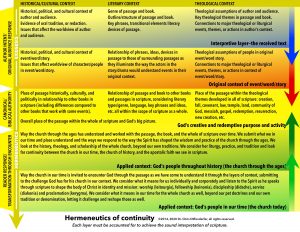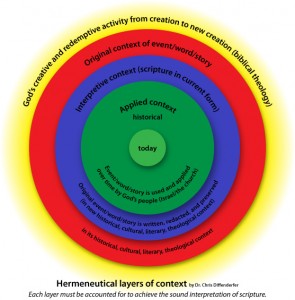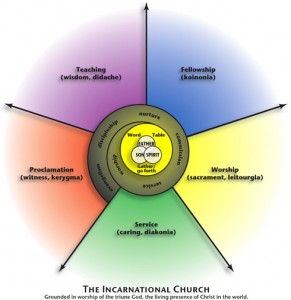The following is a guide for individual and family devotion during Holy Week. A PDF of the guide can also be downloaded from this link: Holy Week devotional guide.
Daily prayer
Suggested for use with the readings for each day in Holy Week for individual or family prayer. Adapted from the Greek Orthodox prayer book for Holy Week.
Blessed is our God, always, now and forever. Glory to you, Lord!
O heavenly king, comforter, the Spirit of truth, ever-present and filling all things, the treasure of all blessings and giver of life, come and dwell within us; cleanse us from every blemish, and save us, O blessed one.
Holy God, holy mighty, holy immortal, have mercy on us. (3X)
Glory to the Father, and to the Son, and to the Holy Spirit.
As it was in the beginning is now, and shall be forever. Amen.
Read the psalm
All-holy Trinity, have mercy on us. Lord, pardon our sins; Master, forgive our iniquities; O holy one, visit and heal our infirmities, for your name’s sake. Lord have mercy, Christ have mercy, Lord have mercy.
Read the Old Testament and epistle readings
Our Father in heaven, hallowed be your name, your kingdom come, your will be done, on earth as in heaven. Give us today our daily bread. Forgive us our sins as we forgive those who sin against us. Save us from the time of trial, and deliver us from evil.
For the kingdom, the power, and the glory are yours now and forever. Amen.
Read the gospel
Alleluia, alleluia, alleluia! Glory to you, O God. Our hope, our Lord, Glory to you.
Prayer—seek God bringing praise, petitions, and gratitude to him.
Help us, save us, have mercy upon us, and protect us, O God, by your grace. Amen.
Glory to you, O God, our hope, Glory to you!
May Christ, our true God, the Lord, who willingly came to his passion for our salvation, through the intercessions of his all-pure and holy mother; the power of the precious and life-giving cross; the protection of the honored powers of heaven; the supplications of the honored, glorious prophet and forerunner John the Baptist; the holy, glorious, and all-laudable apostles; the holy, glorious, and victorious martyrs; our saintly and god-bearing Fathers; the holy and righteous divine ancestors Joachim and Anna; of the blessed Clement of Rome, our beloved patron, and of all the saints, have mercy on us and save us, as a good, loving, and merciful God. Amen.
Monday
The mission and anointing of the servant upon whom the Spirit of God rests and who has come to establish justice.
Psalm 36.5-11; Isaiah 42.1-9; Hebrews 9.11-15; John 12.1-11
Tuesday
The commission of the Messiah, the light to the nations, and the scandal of unbelief.
Psalm 71.1-14; Isaiah 49.1-7; 1 Corinthians 1.18-31; John 12.20-36
Wednesday
The passion of our Lord and his betrayal.
Psalm 70; Isaiah 50.4-9a; Hebrews 12.1-3; John 13.21-32
Three special days—a time to die to sin
Adapted from Robert Webber, Ancient-Future Time, pages 123-134
Our spiritual journey is rooted in the great mystery of Christ’s death and resurrection, which is remembered especially on the three great days in Holy Week, Maundy Thursday, Good Friday, and Holy Saturday (called the paschal Triduum).
We have the opportunity to observe these three days with the humility and focus befitting the redeemed who owe our lives to Jesus Christ and what he suffered on our behalf. Therefore, these three days should not to be taken lightly or frittered away in casual conversation, the search for pleasure, or the pursuit of business. In these days we experience and encounter our own reality in the reality of Christ’s horrible death and burial and in his triumphant resurrection from the dead. If we miss these days, we have missed the heart of our spiritual pilgrimage.
Therefore we ought to organize our time and commitments in such a way that we can center entirely on our own participation in the death and resurrection of Jesus and do our best to set aside anything that might interfere with the deep spiritual focus these days bring to us and the unique ways the Holy Spirit can speak to us through their observance.
Maundy Thursday
We pass with Jesus into the darkness of his last night in which his determination to go to the cross is set in vivid contrast to the powers against which he must struggle. We walk that path with him.
Psalm 116.1-2, 12-19; Exodus 12.1-4, (5-10), 11-14;1 Cor. 11.23-26; John 13.1-17, 31b-35
Good Friday
We worship with both the sorrow we bring through our identification with Jesus in his death and the joy we experience knowing that his death was the death of death, the ruination of the powers of evil.
Psalm 22; Isaiah 52.13-53.12; Hebrews 10.16-25 or 4.14-16; 5.7-9; John 18.1-19.42
Holy Saturday
A day of rest and preparation for the great service of resurrection (the vigil).
Psalm 31.1-4, 15-16; Job 14.1-14 or Lamentations 3.1-9, 19-24; 1 Peter 4.1-8; Matthew 27.57-66 or John 19.38-42
Suggestions for reflection and discipline during Holy Week
Take time each day
- To remember God’s mighty acts of salvation and consider what they mean to your spiritual journey and to Falcon Ekklesia as the body of Christ in our community.
- Reflect on the past year:
- How have you entered into his death this year? What sins in your life need to be brought to death?
- How have you been raised to new life in his resurrection this year? What in your life still needs renewal?
Consider reorganizing your time leading up to Easter and make it a point to be participate in all the celebrations of the church. Demonstrate the importance of your faith, your submission to Christ as Lord, and your grateful love for his sacrifice by refraining from anything that would interfere with the worship of the body of Christ and your own focus on Christ’s death and resurrection.
Extend the fast through the week, perhaps through simplfied meals each day, continuing to limit your diet, or abstaining from a meal or two each day.



